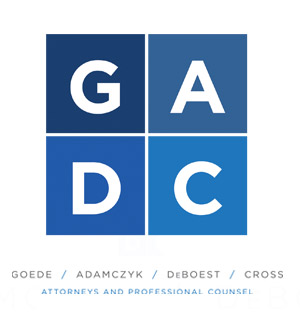The board of directors in my homeowners association meets every month and provides a cursory financial report with little detail. We have requested the treasurer and board provide more information, but the board responds that we can get the detail at the property management office. Does Florida law provide any redress?
G.A., Jupiter
A: Florida law provides that the association’s financial records are official records and accessible to homeowners or their authorized representatives. Specifically, the statute requires that the association maintain 1) accurate, itemized and detailed records of all receipts and expenditures; 2) current account and periodic statement of the account for each owner; 3) all tax returns, financial statements and financial reports, and 4) all other records that identify, measure, record or communicate financial information. So if we assume the association is maintaining the appropriate records, the question is whether the Board is required to disclose this information in considerable detail during a meeting. The answer to that question is no. The Board is required to exercise its fiduciary duty which may dictate that individual board members need to inquire into financial details, but that would not necessarily translate into detailed reports at meetings during the treasurer’s report or at any other time. There is also no legal obligation for the board to provide detailed account statements for owners at meetings.
Because the financial records are official records, you can make a written request to inspect the financial records listed above and the association must make them available to you. If the association posts these records on the website as a courtesy, it is merely a courtesy and not required by Florida Statutes chapter 720 governing homeowners associations.
Q: If the assessments are payable quarterly and I sell my home in the middle of a quarter, who is responsible for payment?
A.B. Stuart
A: When a contract to sell a unit is executed, the closing agent will request the association complete an estoppel which discloses information relative to the transaction, including the amount of quarterly assessments and whether they are paid. If the closing date is in the middle of a quarter, the dues will generally be prorated so that you pay for the portion of the quarter that you own the unit and the buyer pays for the portion after closing. If you paid for a full quarter and close in the middle of the quarter, it will result in the buyer reimbursing you on the closing statement so that the buyer pays the post-closing portion at the closing table, which results in more money being paid to the seller at closing.
If you are talking about a special assessment, the analysis becomes much more complicated and dependent upon the assessment resolution adopted by the Board and your sales contract. Generally, a special assessment is payable by the owner as of the due date of the assessment because that is when it becomes due and payable. Most real estate contracts, however, will specifically address this and delegate responsibility based on whether the special assessment is levied before or after the contract is fully executed. For example, the contract may specifically provide that the buyer is responsible for special assessments realized after the effective date of the contract. So the general answer is that the owner as of the due date is legally responsible, but this is often addressed in the contract between the buyer and seller.
Q: Our condominium election is fast approaching and we are worried that the election will not occur due to lack of quorum. It has been years since we have established a quorum at an annual meeting. What happens if a quorum is not reached?
S.D. Stuart
A: Actually, Florida law does not require a quorum in a condominium association to constitute a valid election. Specifically, Florida Statutes section 718.112 provides that “there is no quorum requirement [for an election]; however, at least 20 percent of the eligible voters must cast a ballot in order to have a valid election.” Thus, if your quorum is a majority and 25 percent of the membership has cast a ballot, you have a valid election under today’s statutes. In the event you have less than 20 percent participate in the election, the condominium association’s election is invalid and the prior board of directors would continue to serve.
Visit our Condo/HOA Blog for more of our Q&A articles.
Steven J. Adamczyk Esq., is a shareholder of the law firm Goede, DeBoest & Cross, PLLC. To ask Mr. Adamczyk questions about your issues for future columns, send your inquiry to: guestion@gadclaw.com. The information provided herein is for informational purposes only and should not be construed as legal advice. The publication of this article does not create amailto:info@gadclaw.comn attorney-client relationship between the reader and Goede, DeBoest & Cross, PLLC or any of our attorneys. Readers should not act or refrain from acting based upon the information contained in this article without first contacting an attorney, if you have questions about any of the issues raised herein. The hiring of an attorney is a decision that should not be based solely on advertisements or this column.

